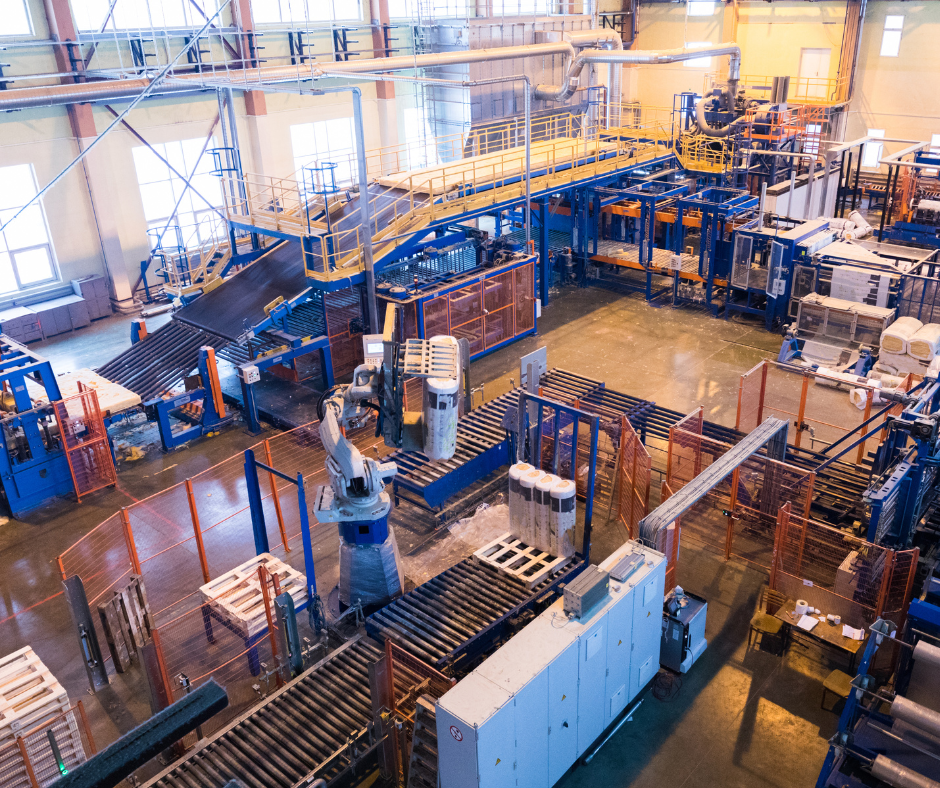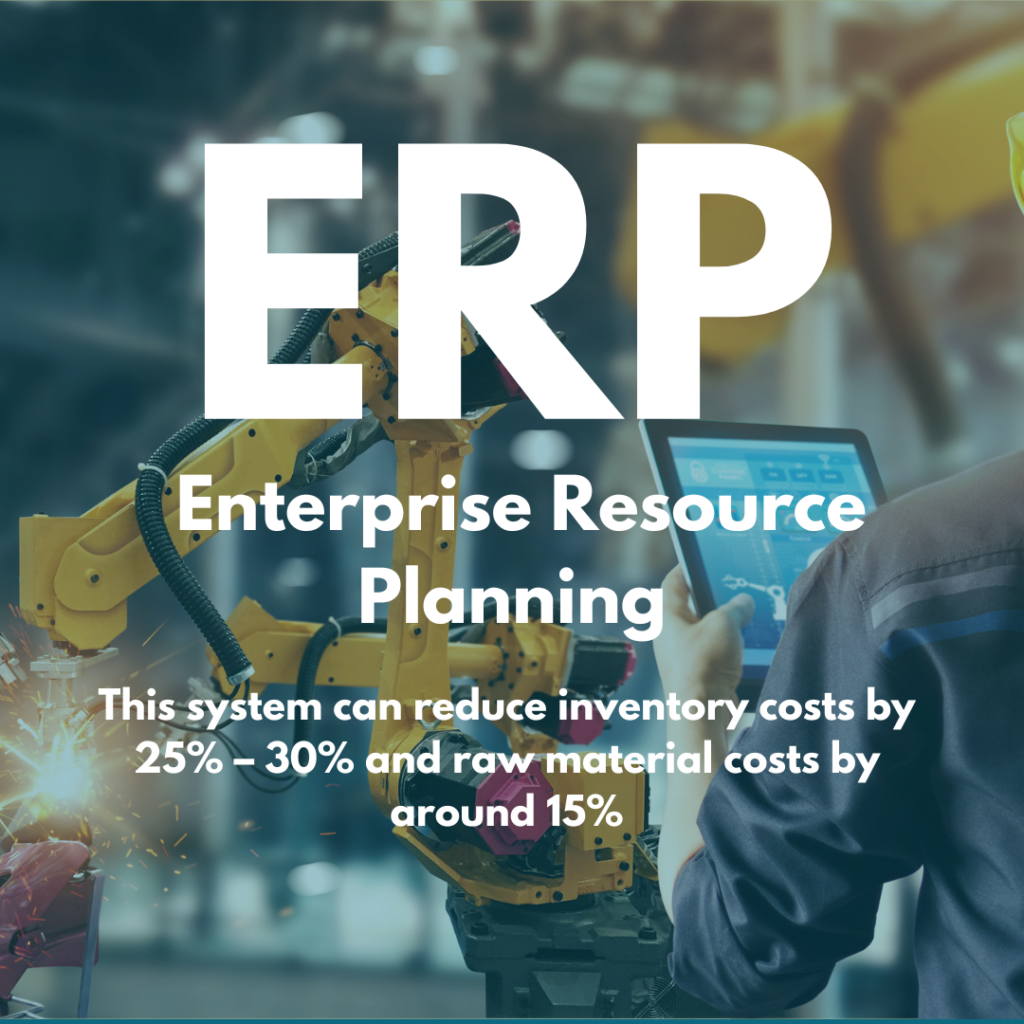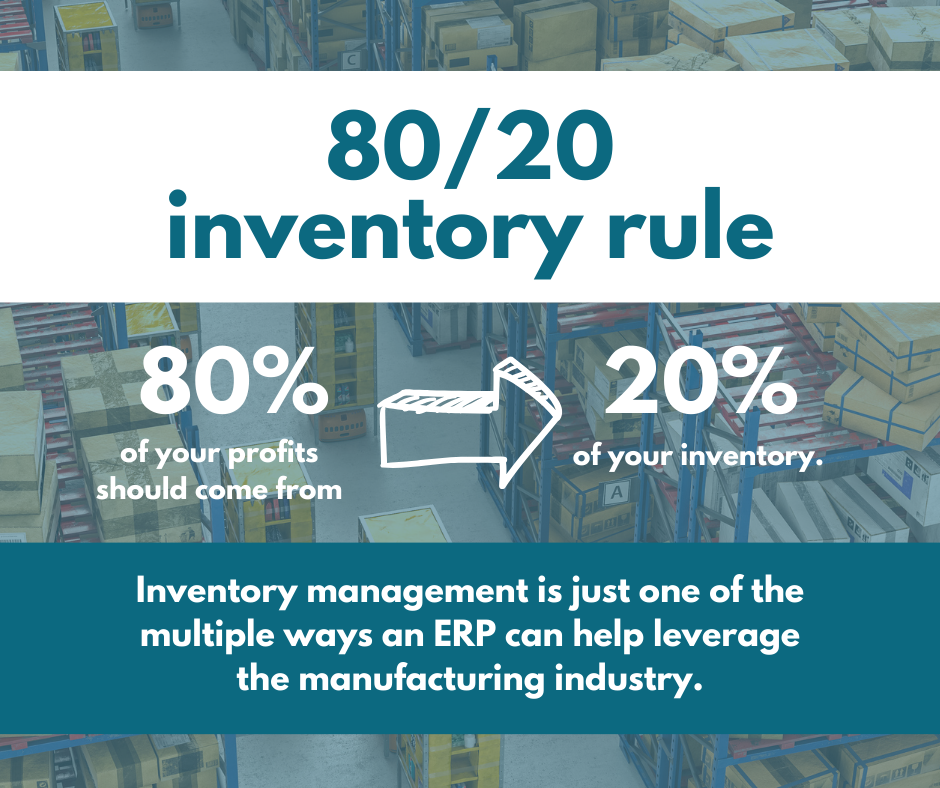Inventory Optimization, a First Look at ERPs in the Manufacturing Industry
Inventory Optimization, a First Look at ERPs in the Manufacturing Industry

Have you ever wondered if your business could benefit from having an ERP system? The answer is yes, an ERP software can help any company in any industry. However there are some sectors where the ERP impact is very notorious, for example the manufacturing industry. This is due to the numerous processes this type of enterprises have, which could be why the first traces of ERP were inside the manufacturing industry and consisted of paper-based scheduling systems with the economic order quantity (EOQ) model.

Before we go further, let’s establish what an ERP is. It stands for Enterprise Resource Planning and in simple terms it functions as an enterprise recorder that enables you to have instant insights of your most important departments. Basically it centralizes all business functions. It helps the enterprises’ various departments keep an up-to-date view of the company’s performance as well as process status.
An ERP can become an essential tool inside any business. According to a global trade’s 2022 article, this system can even reduce inventory costs by 25% – 30% and raw material costs by around 15%. Clearly, this is a very valuable asset in any industry. However, inside the manufacturing sector, ERPs can be the difference between being average and achieving greatness. Let’s take a closer look into one of the most important components in supply chain management: inventory control.
Inventory Management
Inventory management is critical inside manufacturing companies. It can literally make or break you. Inefficient inventory control can damage customer relationships and potentially affect your ability to sell due to product shortage. ERP systems (most of them) offer demand forecasts based on the historical data of your enterprise. The first related benefit is to help you acquire the materials you need for production and keep all customers satisfied. Secondly, it will notify whenever you’re running low on a product, or if the item is about to expire/approach warranty end. Additionally, since this solution offers the option of sorting multiple supplier quotes. You can always choose the best options to acquire your raw materials and reduce production costs.

Have you heard of the 80/20 inventory rule? It states that 80% of your profits should come from 20% of your inventory. This is a rule based on the Pareto Principle, that has become a management consulting principle. With the help of an ERP system you can easily identify your most profitable inventory items and make sure you have them in stock, ready to use. You also gain a complete visual of your inventory’s essential information, helping you apply this principle.
As mentioned before, ERPs help define material forecasts, which eventually lead to better production planning. The importance of keeping a manageable and useful stock relies on being able to provide any customer, regular or unexpected, successfully. That’s why the reach for an ERP can also be measured through the level of loyalty and return rate of your customer base.
In addition, you can gain better route planning and load optimization in regards to inventory transportation. You can also efficiently manage all related expenses in order to get an overall better control of your finances.
Manufacturing Inventory Management is just the beginning
What is SAP and What Does it Stand For?
SAP, which stands for Systems, Applications, and Products in Data Processing, is a leading provider of ERP (Enterprise Resource Planning) software solutions. SAP’s software products cover a broad spectrum of business functions, including ERP, CRM, supply chain management, human capital management, and more. These solutions are designed to help organizations streamline their operations, improve efficiency, and drive innovation in the digital age.
SAP Business One
Among SAP’s offerings is SAP Business One, a comprehensive ERP solution designed specifically for small and medium-sized enterprises (SMEs). SAP Business One provides integrated functionalities for managing various aspects of business operations, including finance, sales, customer relationship management (CRM), inventory management, and more. It enables SMEs to streamline their processes, improve efficiency, and make informed business decisions based on real-time data insights.
Implementing SAP Business One can revolutionize inventory management for manufacturing companies, providing them with the tools they need to optimize their inventory levels, reduce costs, and improve customer satisfaction. With features such as demand forecasting, supplier management, and inventory tracking, SAP Business One empowers manufacturing businesses to stay competitive in today’s dynamic market landscape.
Incorporating SAP Business One into your manufacturing operations can lead to significant improvements in inventory optimization, ultimately contributing to overall business success and growth.
Inventory management is just one of the multiple ways an ERP can help leverage the manufacturing industry. However, since ERPs are holistic tools, their impact can be traced all along the rest of the supply chain: planning, sourcing, production, transportation and return of goods. There is a wide range of benefits that come within the use of intelligent and tailored ERP softwares in the manufacturing industry; inventory management is just a small but essential part of it.
If you’d like to know how we can help your manufacturing business

